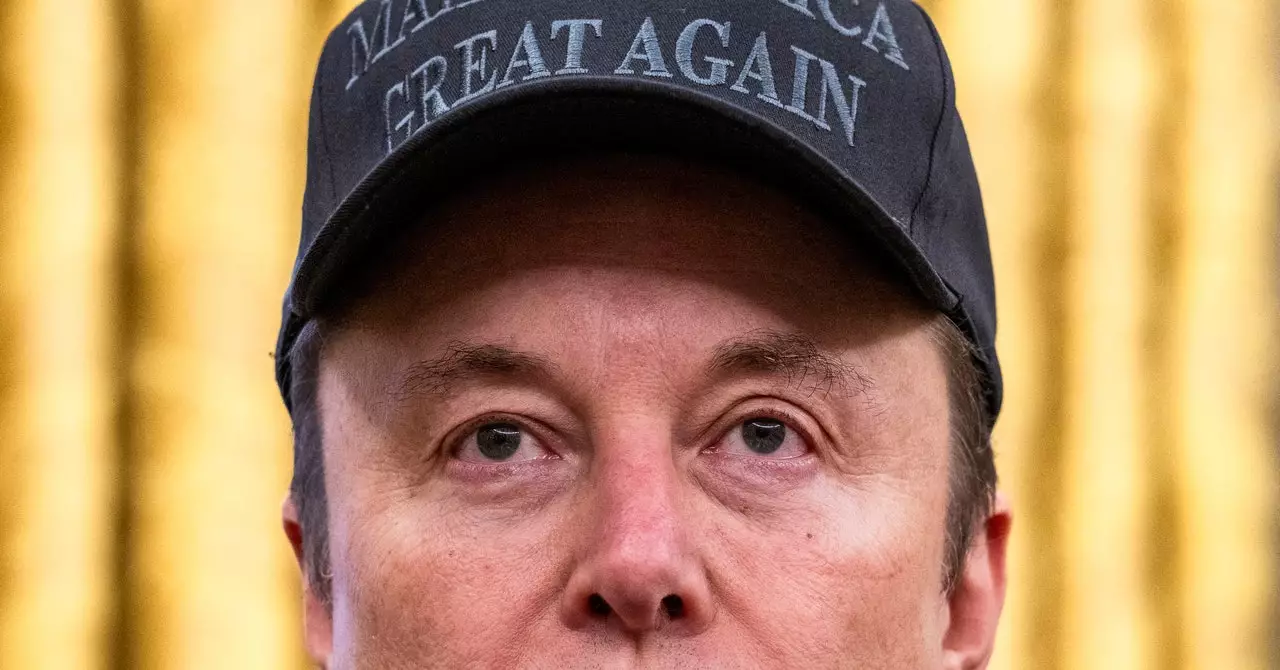In a surprising announcement this week, Elon Musk rolled out his ambitious Department of Government Efficiency (DOGE) initiative, which he claims will revolutionize transparency within the United States government. While such a proposal sounds promising, the launch has raised a multitude of concerns regarding the actual transparency of the project, its purpose, and Musk’s potential conflicts of interest as its overseer.
At a recent press conference held in the Oval Office, Musk pledged that the DOGE project would operate with “maximal transparency,” suggesting a refreshing shift from the secrecy that often shrouds governmental operations. However, the initial launch of the DOGE.gov website revealed a starkly different reality. To the surprise of many, the site was devoid of substantial content when it first went live, instead merely aggregating posts from Musk’s social media platform, X, formerly Twitter. This simplistic aggregation does little to fulfill Musk’s promise of transparency; rather, it raises questions about the seriousness of the initiative and the motivations behind it.
Critics have pointed out the inherent conflicts of interest stemming from Musk’s dual role as both the head of DOGE and the owner of X. The site’s coding appears to prioritize promoting content from Musk’s platform over the transparency of the project itself. According to a review of the site’s source code conducted by WIRED, the canonical tags direct search engines to prioritize Musk’s X platform for content associated with the DOGE initiative instead of the official DOGE.gov site. This unusual approach signals a deeper commitment to promoting Musk’s brand rather than fostering governmental accountability.
As web developer Declan Chidlow noted, this is not how governmental transparency is typically administered, where an official website should serve as the primary source of information. Instead, DOGE.gov seems to play a secondary role to the social media platform, forcing individuals seeking information on government efficiency back to X. Such practices raise ethical questions and challenge the integrity of the initiative.
When the DOGE site finally displayed some content, it consisted largely of an empty “Savings” section, leaving users puzzled as to the savings generated by Musk’s project. The only item listed was a vague promise that receipts would be made available by Valentine’s Day, accompanied by a heart emoji—an unprofessional touch that dilutes the seriousness of the project further. A section titled “Workforce” presented bar charts displaying statistics on government agency personnel, yet this presentation is hardly substantive and offers no context or analysis of the data provided.
With such minimal offerings, it is hard to see how DOGE can fulfill its mission of improving efficiencies or delivering transparent government operations. The void of concrete details begs the question: what are the exact objectives of this project? And how do Musk’s undertakings benefit the citizens at large?
Elon Musk’s track record in both the private sector and his recent overtures into governmental operations offer a mixed legacy. While he is often lauded for his innovations in space and electric vehicles, the success of the DOGE initiative remains questionable. The lack of transparency and sweeping promises, when juxtaposed with the tangible reality of the project thus far, raises concerns about leadership quality and accountability in a government context.
Moreover, the initiative appears to reflect more of a marketing strategy than a sincere endeavor to enhance efficiency within government entities. If the DOGE project is indeed serious about optimizing government operations, more concrete steps and detailed reporting will be essential. Otherwise, its existence may be relegated to a mere public relations stunt, blurring the lines between private interests and public service.
As it stands, the DOGE initiative, while ambitious in intent, is mired in uncertainty and ethical dilemmas. Elon Musk’s approach to ensuring government transparency may not align with the necessary commitments to accountability and formal governance. For DOGE to succeed, it must transition from flashy social media promotions to a robust framework of tangible results and detailed public disclosures. Whether Musk can steer this ship in a direction that fosters genuine governmental efficiency remains a question that merits rigorous public scrutiny.

